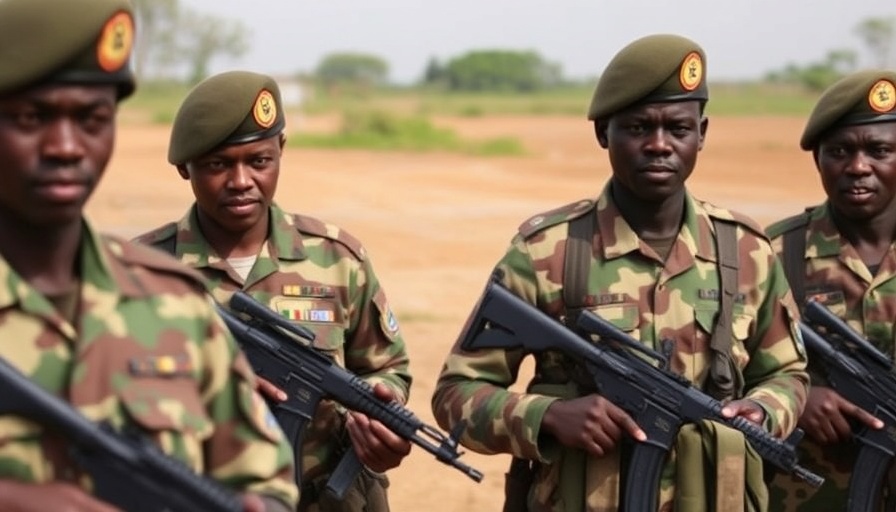
Understanding the Controversy: Ugandan Troops in South Sudan
The deployment of Ugandan troops in South Sudan has sparked significant controversy within the region, raising pressing questions about sovereignty, security, and regional alliances. The situation intensified as First Vice President Riek Machar publicly accused Uganda of breaching a United Nations arms embargo. The presence of these troops comes amidst escalating political tension between coalition partners in South Sudan's fragile peace government established under a 2018 peace deal.
Historical Context: Past Military Involvements
Uganda's military involvement in South Sudan is not a new phenomenon. Historically, the Ugandan People’s Defence Forces (UPDF) have intervened during moments of severe political strife. A notable instance was during the civil war that erupted in December 2013, leading to numerous cycles of conflict. Despite claiming to protect South Sudan’s government, these interventions often leave a legacy of mistrust and further complicate diplomatic relations.
Political Repercussions: A Struggle for Control
Machar’s accusations against the Ugandan presence highlight a critical power struggle within the South Sudanese government. He argues that the UPDF's recent deployment was unauthorized and undermined the Revitalised Transitional Government of National Unity (RTGoNU). This contention not only reflects Machar's desire for autonomy but signals deeper rifts in governance that could destabilize the nation once again.
Implications for Regional Stability
In a letter addressed to international bodies—including the UN, the African Union, and the Intergovernmental Authority on Development—Machar called for intervention, underscoring the precarious security climate in South Sudan. The loss of trust between governmental factions threatens long-term peace and could give rise to further conflicts. The Ugandan military’s strong alignment with President Salva Kiir, where any threat against him is viewed as a declaration of war, adds layers of complexity to this already fraught dynamic.
The International Context and Its Impact on Africa's Economy
This military presence also poses questions about Uganda's foreign relations and its impact on the African continent's economy. As nations navigate their ties and strategic interests, the geopolitical ramifications of Ugandan troops in South Sudan could influence trade, investment, and economic development across the region. The broader narrative of African politics and governance is ever more intertwined with global dynamics, requiring leaders to balance domestic stability with international partnerships.
Conclusion: The Need for a Collaborative Approach
The unfolding situation in South Sudan exemplifies the intricate interplay of military interventions, political agendas, and the quest for peace. As stakeholders from Uganda, South Sudan, and international organizations engage in dialogue, the need for a collaborative approach to governance, security, and economic cooperation becomes paramount. Given the critical position Africa holds in the global economy, nuanced strategies are essential to ensure lasting peace and stability in the region. Business leaders, policymakers, and academics alike should stay attuned to these developments, as they will undoubtedly shape the future of not just South Sudan, but the entire continent.
 Add Row
Add Row  Add
Add 


 Add Row
Add Row  Add
Add 

Write A Comment